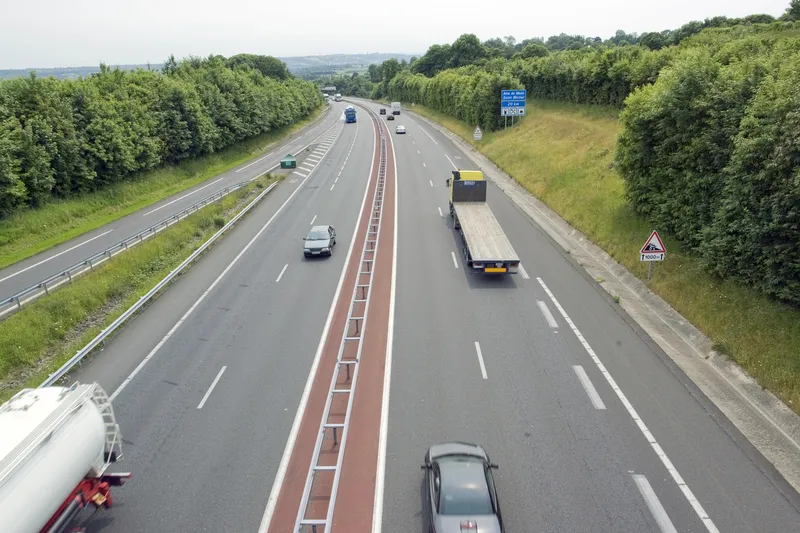A new report from P and S Market Research indicates that the global intelligent transportation systems (ITS) market is expected to increase from US$18,210.2 million in 2014 and reach $38,013.2 million in 2020, with a CAGR of 13.1 per cent during 2015-2020.
The global market is mainly driven by increasing traffic congestion. As the traffic congestion is increasing, people are facing more problems. Traffic congestion wastes time of passengers and leads to delay in reaching the workplace. The most effective
November 6, 2015
Read time: 2 mins
A new report from P and S Market Research indicates that the global intelligent transportation systems (ITS) market is expected to increase from US$18,210.2 million in 2014 and reach $38,013.2 million in 2020, with a CAGR of 13.1 per cent during 2015-2020.
The global market is mainly driven by increasing traffic congestion. As the traffic congestion is increasing, people are facing more problems. Traffic congestion wastes time of passengers and leads to delay in reaching the workplace. The most effective solution to reduce traffic congestion is adopting intelligent transportation systems that manage the traffic system more effectively and efficiently. The market in Asia-Pacific is expected to witness the fastest growth with a CAGR of 14.1 per cent during 2015-2020. This is due to supportive government initiatives towards the implementation of ITS across several developing countries in Asia-Pacific.
The increasing environmental pollution is also supporting the growth of the global intelligent transportation system market. The intelligent transportation system is able to minimize the adverse environmental impacts on human health. The implementation of intelligent transportation system also leads to improvement in air quality. The environmental burden of new road infrastructure can be minimized with the help of intelligent transportation system, which manages the existing road network. Vehicle emissions can be reduced to a great extent by improving the traffic flow with the use of improved network management techniques, offered through the intelligent transportation system.
The cooperative vehicle system accounts for the smallest share in the system segment of the global market, however the category is expected to grow with the highest rate (13.7 per cent CAGR) during the forecasted period. The highest growth rate of cooperative vehicle system is due to increasing need for improving energy efficiency of road transportation. During the previous years, the activities related to enhancement in cooperative vehicle system have increased considerably in Europe and Japan. This is because the trucks and automobiles in Europe and Japan are equipped with enhanced technologies.
The major companies operating in the market include596 Thales, 4984 Kapsch TrafficCom, 1692 TomTom International, Nuance Communications Inc., 108 Q-Free, 4306 Denso Corporation, 43 Efkon, 139 TransCore, and Savari.
The global market is mainly driven by increasing traffic congestion. As the traffic congestion is increasing, people are facing more problems. Traffic congestion wastes time of passengers and leads to delay in reaching the workplace. The most effective solution to reduce traffic congestion is adopting intelligent transportation systems that manage the traffic system more effectively and efficiently. The market in Asia-Pacific is expected to witness the fastest growth with a CAGR of 14.1 per cent during 2015-2020. This is due to supportive government initiatives towards the implementation of ITS across several developing countries in Asia-Pacific.
The increasing environmental pollution is also supporting the growth of the global intelligent transportation system market. The intelligent transportation system is able to minimize the adverse environmental impacts on human health. The implementation of intelligent transportation system also leads to improvement in air quality. The environmental burden of new road infrastructure can be minimized with the help of intelligent transportation system, which manages the existing road network. Vehicle emissions can be reduced to a great extent by improving the traffic flow with the use of improved network management techniques, offered through the intelligent transportation system.
The cooperative vehicle system accounts for the smallest share in the system segment of the global market, however the category is expected to grow with the highest rate (13.7 per cent CAGR) during the forecasted period. The highest growth rate of cooperative vehicle system is due to increasing need for improving energy efficiency of road transportation. During the previous years, the activities related to enhancement in cooperative vehicle system have increased considerably in Europe and Japan. This is because the trucks and automobiles in Europe and Japan are equipped with enhanced technologies.
The major companies operating in the market include









